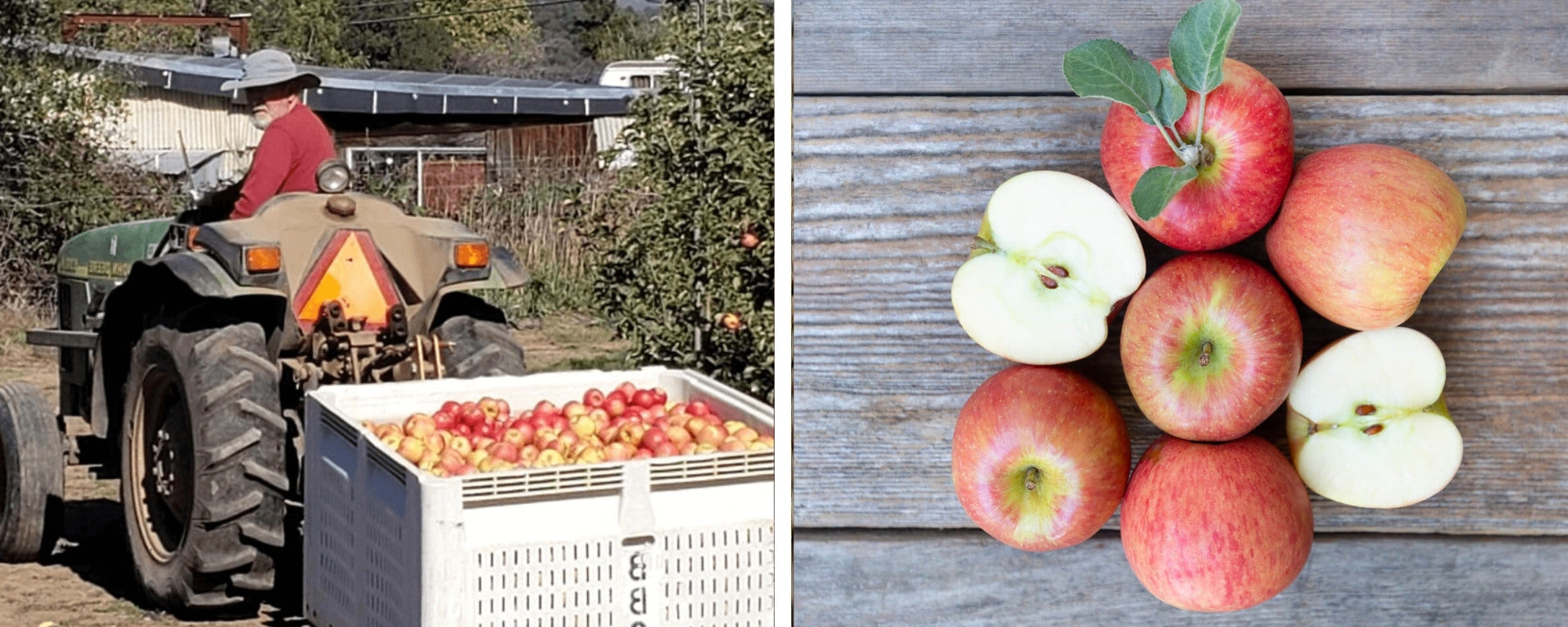
“Little by little.”
Talk with Bill Peixoto of Billy Bob Orchards and you’ll hear that phrase again and again.
Little by little, he and his brother Bob rebuilt their father’s Watsonville, CA apple orchard after it fell into disrepair in the 80s, after their father died. Little by little, Bill used the money he earned from selling his crops to buy new trees and equipment. And, little by little, he expanded his offerings from Newtown Pippin and Red Delicious to 22 of the most popular varieties available.
We discovered Billy Bob Orchards' delicious apples since they are our neighbor at the Berkeley Farmers' Market. We are happy to welcome them as one of our partner farms providing apple varieties like Cameo, Braeburn, Fuji, Granny Smith, and Mutsu. We caught up with Bill on a busy October afternoon – right in the middle of the harvest – to talk about apples and farming.
What’s the history behind Billy Bob Orchards?
My dad bought the land in 1957. And then he bought the neighboring orchard around 1960. My dad worked in agriculture, he did tractor work, and he worked his way up in a fertilizer company. He farmed apples as a hobby so to speak, to make extra money. I have six brothers and sisters, and my mom stayed home with us kids. So my dad was the sole breadwinner. When he passed away in 1983, my brother and I took over the orchard. It was pretty run down, so little by little we nursed it back. I worked at a grocery store at night for a long time and then worked with my brother at Lakeside Organics for a while. I farmed apples on the side. I eventually retired, and now farming is what I do.
So this is retirement?
When you like what you do, it doesn’t feel like work. I like to be out in the orchard, out in the sun, working with the trees. My son has really built the business side – he and my wife sell at the farmers markets. I just grow the apples.
When did you switch to organic farming?
I made the switch in 1996, and that was a learning curve. I went from working with commercial fertilizers to working with compost and cover crops. We became certified organic in 1999.
Tell us about your farming practices.
We don’t make our own compost, we buy it. We build up the soil with compost, and we also use chicken pellets. We spray the trees with calcium to help the cell integrity of the fruit. That also helps the fruit store longer, and be crunchier and healthier.
What are you harvesting today?
Right now we’re harvesting Pink Ladies and Fuji. Hauer is the last variety, and that will be available around Thanksgiving and into December.

